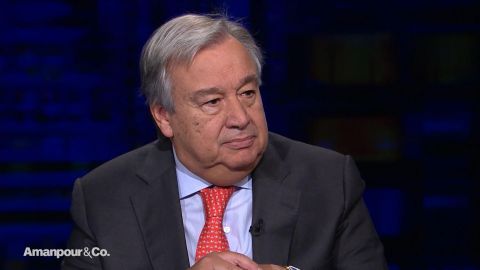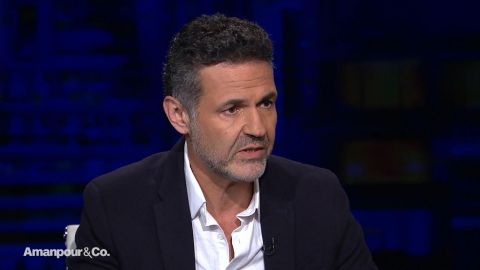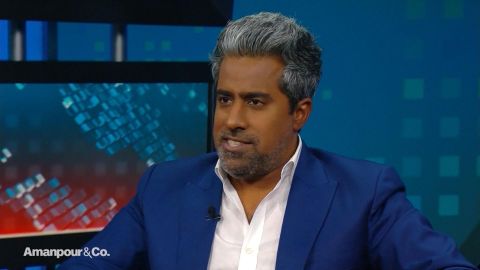Read Transcript EXPAND
CHRISTIANE AMANPOUR: Well, how about this humanitarian catastrophe that is also in the region, in Southeast Asia and that is the Rohingya refugees, these people who have been pushed out of their own country, Myanmar, and who are now in Bangladesh along the water. You have visited them. You went and you talked to people there and got a personal, you know, look at the suffering and all of that. But just this week, the United Nations has released, yesterday, a fact-finding report calling for generals in Myanmar’s military to be tried on charges of genocide.
ANTONIO MANUEL GUTERRES, SECRETARY-GENERAL, UNITED NATIONS: But this is from our human rights supporters.
AMANPOUR: Correct.
GUTERRES: And I have to say that I know the Rohingya story since many years ago. As I (INAUDIBLE) for refugees, I went twice to North
(INAUDIBLE) State before this last crisis. There is no population in the world that actually more discriminated.
AMANPOUR: 600 or 700,000 of them are sitting in makeshift camps.
GUTERRES: But they have no nationality. They have no rights. They cannot move. They were in the villages. They could not move. They could not marry without permission. They had no effective access to education or health or to jobs. It is a population that really was completely segregated in the country. And then, we all know the reports that were given by those that suffered. They were victims of an ethnic cleansing, a massive operation in which we had all kinds of torture, we had rape, you had people being burned, levels of suffering that are absolutely unimaginable. Now it is absolutely crucial to establish mechanism of accountability. But more than everything else, it’s crucial to put all pressure in Myanmar and in the army of Myanmar to make sure that conditions are created for these people to be able to go back home. But we are —
AMANPOUR: But what about the genocide charge and the goal for them to be tried on charges of genocide?
GUTERRES: These — as you know, these are areas that only courts can decide. We believe there are very serious crimes that were committed. It’s up to courts to decide what kind of name — what kind of crime was committed. But we are always in favor of mechanisms of accountability and we have always encouraged the work of the ICC and the work of — and the need for the secretary council to refer to the ICC the situations that are relevant from this point of view.
About This Episode EXPAND
Christiane Amanpour interviews António Guterres, U.N. Secretary-General; Laura Coates, former U.S. Federal Prosecutor; and Khaled Hosseini, author of “Sea Prayer.” Hari Sreenivasan interviews Anand Giridharadas, author of “Winner Takes All.”
LEARN MORE



